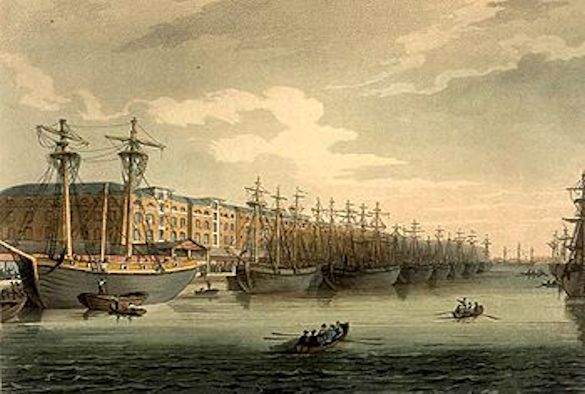Address to international conference in Liverpool, 15 August 1992
1. Here, in this city, today, this city built on the slave trade, on the blood and bones of black people, black men, women and children torn out of Africa and sold like so many trinkets, things, commodities, chattels – here, in this city, there’s a celebration going on of the man who began it all.
That is not just incredible. That is shameless.
2. Because it re-affirms, re-inaugurates the values of genocide and slavery, the morality of private enterprise, the rationale of racism – and a language, a culture, an ideology that justifies and perpetuates them all.
3. But it is no accident that while they are celebrating out there – with their tall ships and their ‘three-hour operatic mega-bash on a 200-foot wide stage’ – that we, the anti-body within the body politic, the virus in the system, should be gathered here – in this horrible hall here, to mark, to commemorate our resistance to those self-same values and mores and ideologies and systems.
And it is no accident, either, that those who are on the platform today represent the peoples of Africa and Asia and the Americas who, both in their countries and in the diaspora, have for 500 years put up a valiant struggle against genocide and slavery and racism and colonialism. But what we also represent is a profound understanding that these struggles are indivisible.
4. W.E.B. du Bois, the great African-American writer, activist, scholar and statesman, said in 1906 that the problem of the 20th century was the problem of the colour line. Today, the colour line is the power line is the poverty line. Poverty and racism and imperialism are indivisible. And the fight against them is indivisible.
Racism and imperialism feed off each other, live off each other. We cannot fight one without fighting the other. And we who are in the belly of the whale, the belly of the monster, should be the first to understand that. We should be the fifth column for the Third World in the heart of the First.
5. 500 years of resistance, yes. The overthrow of slavery, the ending of colonialism – and more recently the defeat of the United States by Vietnam, the experiments in setting up people’s regimes in Nicaragua, Grenada, Cuba, the blossoming of indigenous peoples’ movements, the beginning of the end of apartheid in South Africa, the Black Power movement, and, here in Britain, the experiment of creating out of Asians and Africans and Caribbeans a Black community in which Black was established as a political colour and not the colour of one’s skin. These are some of the achievements, a cross-section of the achievements, not necessarily all of them successful, that we have made in the past. But even as we remember these resistances, let us gird our loins for the struggle ahead. For the fight is not over. We might have laid to rest the old genocide, the old slavery, the old colonialism, the old conquistadors. But there have now risen, in their place, new forms of genocide like the destruction of the peoples of Brazil, new forms of slavery in indebtedness and aid, new forms of colonialism through the invasion of transnational corporations and tourism – and supporting and servicing them all, the new conquistadors: the International Monetary Fund and the World Bank, structural adjustment programmes and trade agreements – a plethora of prescriptive organisations which, under the pretext of developing our countries, have created malnourishment and disease and unemployment, created dung heaps to find food in, shanties to find homes in, created drug economies and displaced people from their homes and their countries and thrown them, as refugees and asylum-seekers, on the shores of Europe and America.
6. 500 years of resistance, yes. Let’s commemorate that achievement – but in commemorating, let us also dedicate ourselves anew to the fight ahead. Let us pledge ourselves to destroying once and for all the historical legacy of Columbus. Let us continue the fight. La luta continua.

